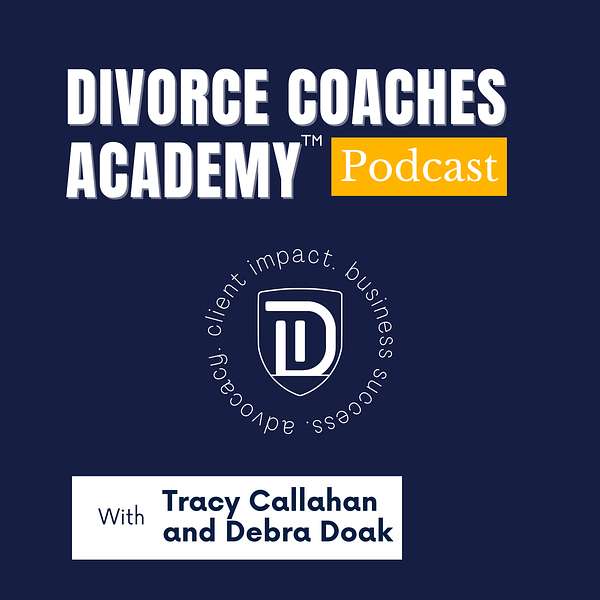
Divorce Coaches Academy
Divorce Coaches Academy podcast hosts Tracy Callahan and Debra Doak are on a mission to revolutionize the way families navigate divorce. We discuss topics to help professional divorce coaches succeed with clients and meet their business goals and we advocate (loudly sometimes) for the critical role certified divorce coaches play in the alternative dispute resolution process. Our goal is to create a community of divorce coaching professionals committed to reducing the financial and emotional impact of divorce on families.
Divorce Coaches Academy
Beyond the Battle: Why High Conflict Divorce Coaching is Missing the Mark
Send Us a Message (include your contact info if you'd like a reply)
The divorce coaching industry harbors a dangerous trend that's causing unnecessary harm to families across the country. In this eye-opening episode, Debra and Tracy tackle the phenomenon of "high-conflict divorce coaching" – an approach that frames every challenging divorce as a battle requiring warfare tactics rather than resolution strategies.
We pull back the curtain on what legitimate professional divorce coaching actually is and contrast it with the predatory marketing of high-conflict approaches that capitalize on fear. These programs effectively encourage clients to spend more money on their divorce, complicate the process, extend timelines, and create lasting damage – all while promising to help them "win" against their ex.
Through real-life examples, we reveal the staggering financial and emotional costs of choosing the high-conflict route. One client spent $80,000 on legal fees and was two years into her divorce without even reaching a temporary agreement – not because of complex assets or genuine safety concerns, but because both parties had adopted a battle mindset. We discuss how this approach operates on flawed assumptions: that you can change your spouse's behavior, that every difficult divorce involves a personality-disordered individual, and that being in constant "defense mode" is necessary.
As an alternative, we outline what to look for in a divorce coach or training program: someone focused on resolution rather than winning, who emphasizes communication strategies, emotional regulation, and clear decision-making. The truth is that the outcomes are typically the same whether you take the high-conflict route or a more measured approach – the only difference is you haven't spent years in litigation or hundreds of thousands of dollars unnecessarily.
Whether you're navigating divorce yourself, supporting someone who is, or considering becoming a divorce coach, this conversation provides crucial guidance for making choices that truly serve your long-term goals and your well being.
Learn more about DCA® or any of the classes or events mentioned in this episode at the links below:
Website: www.divorcecoachesacademy.com
Instagram: @divorcecoachesacademy
LinkedIn: divorce-coaches-academy
Email: DCA@divorcecoachesacademy.com